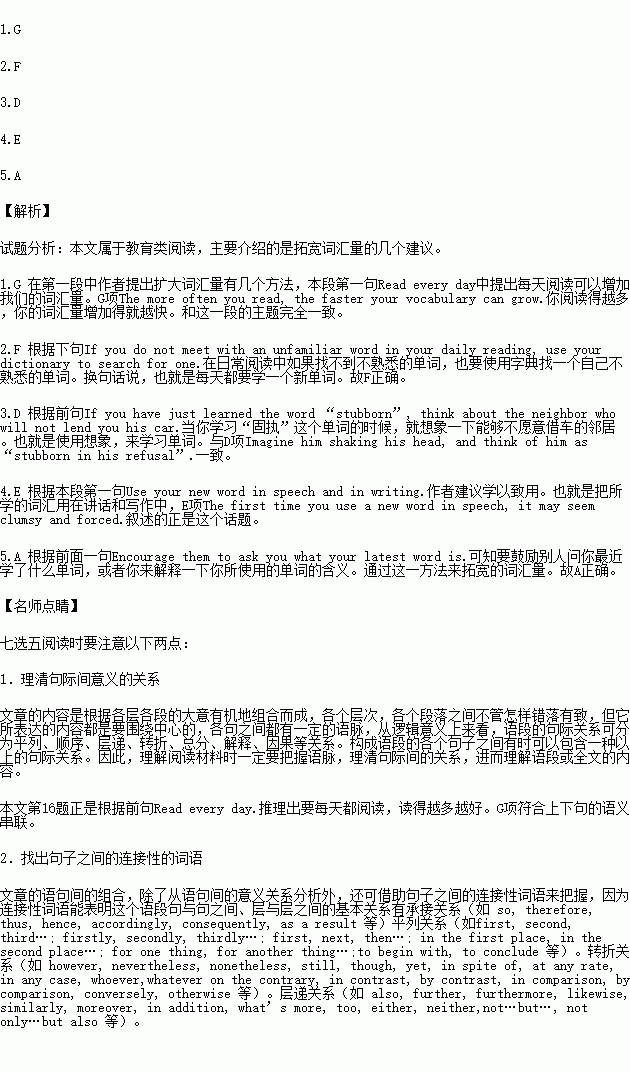题目内容
根据短文内容,从短文后的选项中选出能填入空白处的最佳选项。选项中有两项为多余选项。
How to Improve Vocabulary Fast
Your vocabulary refers to the words in a language you are familiar with. We should learn some ways to expand it.
Read every day. 1. Choose reading material that is slightly above your level and keep a dictionary with you to look up words you do not know.
2. If you do not meet with an unfamiliar word in your daily reading, use your dictionary to search for one.
Learn the correct definition and pronunciation for each new word. Pronunciation is as important as definition because in order to add a word to your active vocabulary, you must be able to use it in speech.
Elaborate(阐释)on the meaning of the word. Use imagery and personal relevance. If you have just learned the word “stubborn”, think about the neighbor who will not lend you his car. 3.
Use your new word in speech and in writing. E-mail your sister about how your cat is stubborn about sleeping on your pillow. 4. But the more you use it, the more fluent you will become in its use. Soon it will be a regular part of your active vocabulary.
Tell everyone you are trying to increase your vocabulary. Encourage them to ask you what your latest word is. 5. The more you explain the meaning of a word to someone, the more likely you are to remember it.
A. Or let them ask for the definition of a new word you have used.
B. Your vocabulary contains the words you understand.
C. The vocabulary can be increased.
D. Imagine him shaking his head, and think of him as “stubborn in his refusal”.
E. The first time you use a new word in speech, it may seem clumsy and forced.
F. Find a new word every day
G. The more often you read, the faster your vocabulary can grow.

